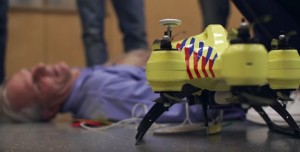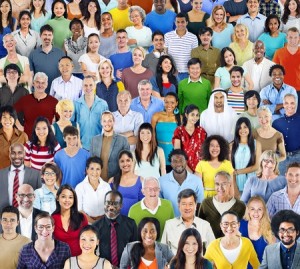A Democratic Model To Resolve Values Conflicts
Stanford University Fellow Vivek Wadhwa wrote a thought-provoking article on LinkedIn, titled: The Apple-FBI battles are a prelude of things to come. Laws and ethics simply can’t keep up with technology.
Wadhwa proposes that the U.S. Congress will endeavor to create new legislation to address the fight between security and privacy, particularly as it relates to encryption technologies. He also suggests “the debates in Congress will be ugly, uninformed, and emotional” and that “lawmakers won’t know which side to pick and will flip flop between what lobbyists ask and the public’s fear du jour.”
Most significantly, Wadhwa suggests that “because there is no consensus on what is right or wrong, any decision they make today will likely be changed tomorrow.”
And this will not be an isolated issue.
 There are many new – and controversial – technologies stirring up values conflicts, including:
There are many new – and controversial – technologies stirring up values conflicts, including:
- The use of drones, from Amazon deliveries, to medical AEDs, to military use.
- Artificial intelligence, which notable personalities such as Bill Gates, Stephen Hawking, and Elon Musk, have publicly stated their concerns for the future of mankind.
- Synthetic biology, including CRISPR–Cas9, a system for engineering genomes that some say holds the promise to create drought resistant and high-yield plants, new sources of fuel, and even “designer babies”. But what if engineers alter the DNA of something – or someone – producing dangerous side effects and/or causing many deaths?
According to Wadhwa, one of the problems with new technologies is that the creators do not fully understand the ramifications of what they are creating. The other problem is that lawmakers are not well informed, and are therefore incapable of making proper ethical decisions.
In the absence of an established moral framework, the key drivers will be emotions, politics, and financial interests.
The Heart of the Matter
The statement that Wadhwa makes that I feel gets at the heart of the matter is this:
It takes decades, sometimes centuries, to reach the type of consensus that is needed to enact the far-reaching legislation that Congress will have to consider. Laws are essentially codified ethics, a consensus that is reached by society on what is right and wrong. This happens only after people understand the issues and have seen the pros and cons.
I disagree. It no longer needs to be this way.
Neither lawmakers nor business leaders will ever fully understand the changing landscape – nor should they. Such an expectation puts too much pressure – and responsibility – in the hands of just a few people.
What’s needed is a way for society (meaning the citizens of a country) to choose what makes sense – right now.
 Thankfully, there is an effective solution.
Thankfully, there is an effective solution.
It’s called The Wisdom of Crowds, and James Surowiecki wrote a book about it in 2005, with the subheading: Why the many are smarter than the few and how collective wisdom shapes business, economies, societies, and nations.
As you might expect, the wisdom of crowds is a proven concept. It dates back to 1906 when British scientist Francis Galton observed a weight-judging competition at a country fair – specifically of an ox. In the final analysis, the mean estimate across 787 entries was almost dead on accurate (1,197 pounds versus the actual weight of 1,198).
On the subject of democracy (Chapter 12), Surowiecki references a 2003 politically oriented experiment with 343 people, observing that:
Given enough information, and the chance to talk things over with peers, ordinary people are more than capable of understanding complex issues and making meaningful choices about them.
What this essentially means is that our most challenging ethical questions about new technologies that create a values conflict can best be solved by the wisdom of crowds.
A Democratic Model to Resolve Values Conflicts
So, to resolve complex ethical issues and values conflicts, here’s my suggested democratic model that lawmakers could easily implement:
- Educate citizens to better understand the role of values and the importance of prioritization (e.g. why “Safety” always comes before “Fun” and that it’s not situational).
- Present the facts and available information about a particular issue and encourage all citizens to openly discuss their concerns (e.g. Should “Equality” come before “Pursuit of Happiness” and if so, why?).
- Create a simple and straightforward process for citizens to vote on and prioritize values (e.g. an online validation and voting mechanism) and then look for the mean within the results.
- Educate and train leaders of all organizations (including business owners and entrepreneurs) on their role in defining and implementing values inside their organizations (e.g. building integrity into every organization).
- Educate consumers on their rights and responsibilities regarding values (e.g. we all generally have a choice on what we buy, where and how we buy it, and who we buy it from).
In other words, politicians and lawmakers don’t need to fully understand the changing landscape of new technologies. They just need to provide a way for citizens to choose and prioritize what makes sense – right now.
The right answer is in the wisdom of crowds.
After all, isn’t this the purpose of a democracy? Maybe it’s time we actually practice it.









